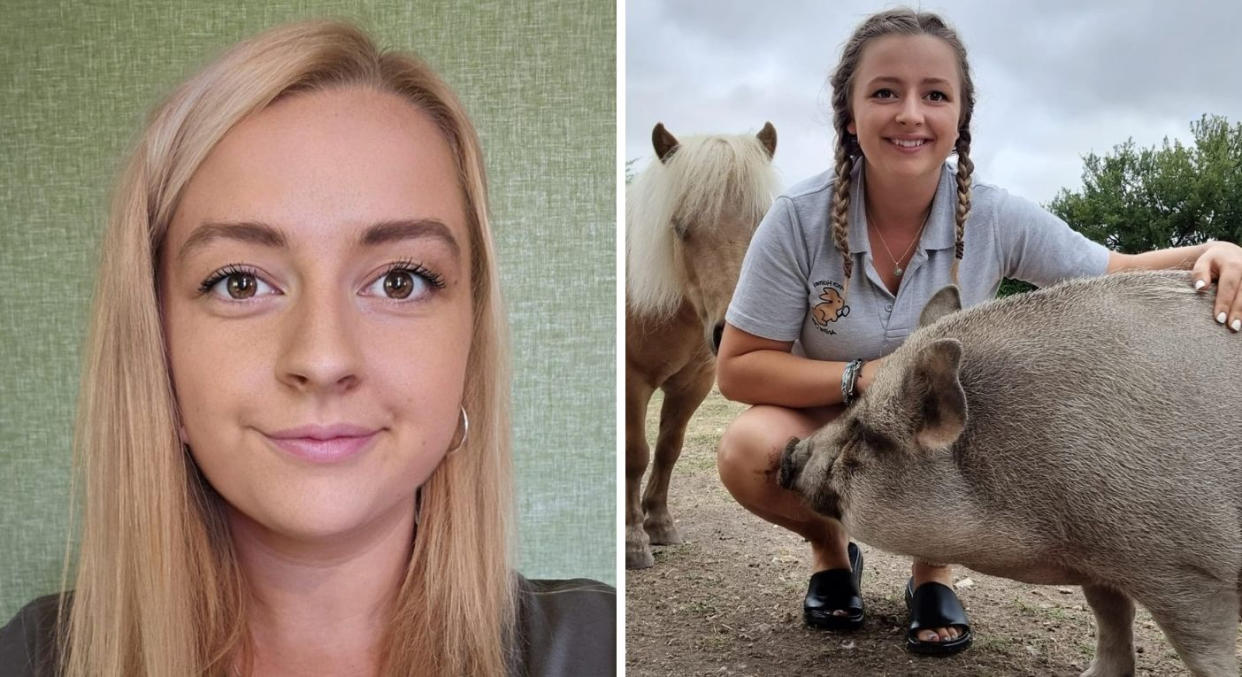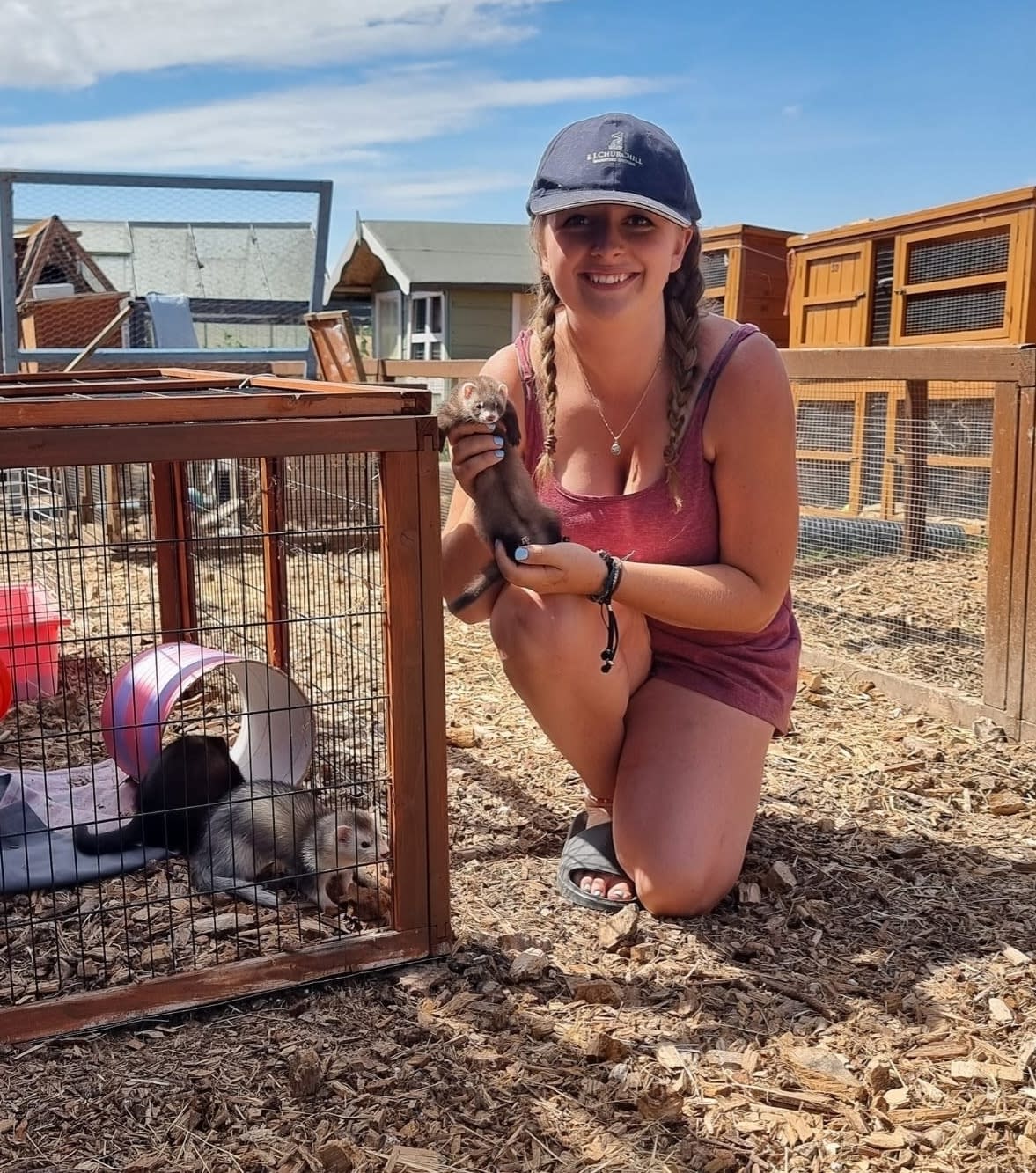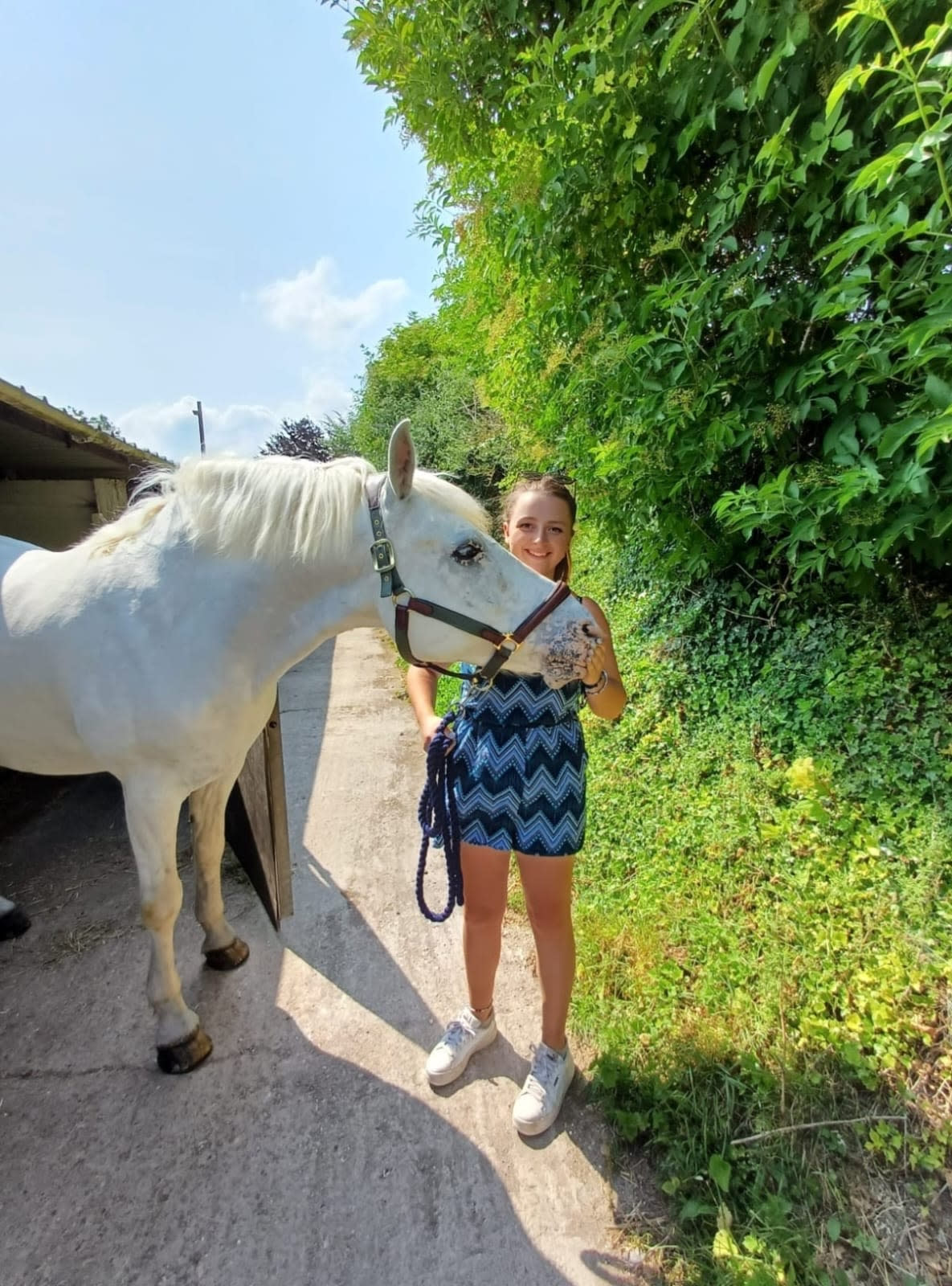I have bipolar and summer can trigger my manic episodes
Eleanor Bell, 24, is senior communications officer for the charity Bipolar UK and was diagnosed with bipolar three years ago. Here, she talks about how summer affects her mood, causing the 'highs' of manic episodes, which are often followed by the lows.

Last summer, I got a camera fitted to the outside of my house. I’d become convinced that people I’d met at the pub the week before had followed me home and were knocking on my door, trying to get in – maybe even to hurt me.
Over that week, I sat up night after night, listening out for the knocking, watching the camera through my phone, determined to catch them in the act.
It took my friends eventually calling 111, they were so worried about me, to accept there was nobody knocking, it was all in my head.
What I was experiencing were paranoid delusions, a symptom of the mania that had been building to a crescendo all summer.
Getting a diagnosis
Three years ago, I was diagnosed with bipolar, a mental health condition characterised by intense mood changes. I’d first experienced a very low mood in my teens and was diagnosed with depression.
Then the highs began, the 'hypomania', which is a less severe form of mania and normally precedes it, when I’d be very productive, very chatty and confident.
One of the main symptoms of hypomania is the lack of need for sleep. In summer I get over-excited about the hours of daylight and how much more stuff I can fit into the day.
As I’ve got older, the highs have become more frequent, sometimes turning into full-blown mania which can mean delusions and hallucinations, which is really frightening.
I’ve come to realise that summer can exacerbate these highs, or even set them off, which is why, although I love summer, I have to exercise self-care.

How summer affects me
Why does this happen in summer? I think it’s to do with the brighter, longer days.
In winter when it gets dark early, it’s easy to get into bed and feel tired around 9 o’clock.
But when it’s bright outside, late into the evening, that routine of winding down for bed becomes much more difficult for me.
When it’s bright outside, late into the evening, the routine of winding down for bed becomes much more difficult for me.
One of the main symptoms of hypomania is the lack of need for sleep. In summer I get over-excited about the hours of daylight and how much more stuff I can fit into the day.
But whilst a normal person might do a bit more and see their friends more, with me, it escalates and becomes like an addiction.
I can go out night after night and never feel tired. The problem with that is that I get completely over-exhausted and don’t realise until it’s too late. I start to forget things and lose all sense of routine. I start to unravel.
Becoming unwell last summer
This is what happened last summer, which is one of the worst episodes I’ve ever had.
It started off gradually as it always does. I felt so excited about the longer days. I suddenly had all this energy which of course felt amazing, but I forgot it never lasts long.
One night, me and my friends went to the pub and got talking to some new people.
I was very chatty and overconfident – a warning sign, as naturally, I’m a very reserved person.
Also, when I am ‘high’ like that I engage in risky behaviour. I start buying everyone drinks and I’ll talk to anyone and tell them anything, but I don’t see the dangers.
When I am 'high' I engage in risky behaviour. I start buying everyone drinks and I’ll talk to anyone and tell them anything, but I don’t see the dangers.
I can’t see if people are inappropriate, even dangerous. I might walk home with a stranger, or tell them private information.
My friends used to think it was great, they’d be like, “Eleanor’s so confident and outgoing!” But now they know the signs more and intervene when necessary.
I got really excited about meeting those random people and wanted to go back to the pub the next night. I ended up going to the pub every single night for a week.
Then, I started to lose my judgment of the situation.
I started to get frustrated with the people I was talking to, thinking, 'Why don’t you leave me alone? Why do you want to know where I live?' – when they were probably just making polite conversation – and 'Oh my goodness, now you want to follow me home and hurt me?!' when in reality, I was the one to initiate the whole thing.
In manic phases, I blow things out of proportion and make up scenarios in my head until I become paranoid and my behaviour becomes erratic.
In these manic phases, I blow things out of proportion and make up scenarios in my head until I become paranoid and my behaviour becomes erratic – as it did with the cameras – and there has to be an intervention.
In the end, my psychiatrist had to adjust my mediation and that worked almost immediately.
After a manic episode like that, I feel really embarrassed. I worry that if one day, there really was someone knocking at my door, nobody would believe me. I lose my credibility.

Grand plans
Another thing that happens in a hypomanic phase, is that I make grand plans and hatch big schemes.
One summer when I was about 16, for example, I set up an animal sanctuary on my parents’ land and still run it to this day, even though I work full-time.
I am so passionate about animals anyway but in summer, it’s like I want to conquer the animal welfare problem single-handedly and believe I am the only person in the world that can.
During a hypomanic phase I tend to make grand plans and hatch big schemes.
If someone rang up and was like, "I have 300 rabbits in my garden and they need you," I’d feel like I was the only person who could possibly help them.
In fact, at any one time, I may be looking after between 60 and 90 rabbits which is a crazy number. When I am 'high' though, I find it incredibly hard to say no.
For example, I’ve always been frightened of snakes. Then last summer, I got a call from someone who was moving away to university and asked, could I take their animals, which included tarantulas, lizards and… snakes.
But rather than be worried, I thought, 'I can do absolutely anything. I can learn all about snakes overnight – no problem.' And sure enough, I spent a whole night researching snakes, then agreed to take in four of them.
I then bought loads of equipment for them. Overspending is another sign I’m becoming unwell. One day, I bought 90 lint rollers and 18 bottles of squash – just in case, you know, lots of people came over. (I live on my own.)
For six or seven summers I did this mega fundraising event for the animal sanctuary, and every summer it would get out of control.
There’d be 800 people turning up, an ice-cream van and a barbecue, but I’d become obsessive about organising it all myself. I wouldn’t let anyone help. I’d have so many sleepless nights then wind up completely burned out, so I haven’t done it for a couple of summers now, and that’s helped.
Avoiding holidays
The biggest trigger for my bipolar is change. This is why, for as long as I can remember I have dreaded going on a summer holiday, even with my family and haven’t been abroad since I was about 14.
I dread the change in routine, the unpredictability, just everything being different. This means I am that one person permanently in the office, being told to take annual leave.
The biggest trigger for my bipolar is change. This is why, for as long as I can remember I have dreaded going on a summer holiday, even with my family and haven’t been abroad since I was about 14.
That can be hard, as sometimes I need the break, but for me, that change in routine can make me so unwell. Even a bank holiday can trigger a change in my mood. I worry that if I did go on a summer holiday, I’d love it so much that I’d really struggle to get back to normal.
That all said, I’m getting much better at managing my bipolar. Getting great blackout curtains has been a game changer; my medication is better and I’ve had lots of psychotherapy which I swear by.
All this means I can enjoy summer rather than dread it, but still, the autumn and spring are safer for me. It never gets too hot or too cold, it’s basically more predictable, and as someone with bipolar, that’s always good.
For more information visit BipolarUK.org.
Read more: Bipolar
Entrepreneur with bipolar says his mental health challenges will never hold him back (Yahoo Life UK, 10-min read)
Bipolar made me suicidal but now I’ve completely rebuilt my life (Yahoo Life UK, 7-min read)
What you need to know about hypersexuality and bipolar disorder (Yahoo Life UK, 6-min read)


